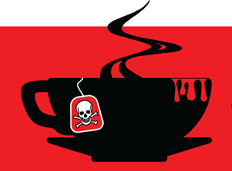 The Malice Domestic awards are called Agathas, after the prolific icon, Agatha Christie. They are bestowed to fans’ favorite authors each year at a conference in Virginia. I consider these awards to be the highest fan writer awards in the soft boiled/traditional genre of crime fiction. The convention has been around since 1989, and a Teapot from Malice is a nice boast for sales and jacket blurbs. The criteria to win an Agatha: “The genre is loosely defined as mysteries which contain no explicit sex or excessive gore or violence.”
The Malice Domestic awards are called Agathas, after the prolific icon, Agatha Christie. They are bestowed to fans’ favorite authors each year at a conference in Virginia. I consider these awards to be the highest fan writer awards in the soft boiled/traditional genre of crime fiction. The convention has been around since 1989, and a Teapot from Malice is a nice boast for sales and jacket blurbs. The criteria to win an Agatha: “The genre is loosely defined as mysteries which contain no explicit sex or excessive gore or violence.”
As opposed to the Edgar A. Poe Awards, the Agathas are not decided by a panel of fellow published authors, but the fans that attend the convention. The way it works: those who signed up and paid their fee for the Malice Domestic conference, are sent ballots. They write down 5 favorite books of established writers, and first time authors, as well as short stories, juveniles, and non fiction they’ve read during the year. The authors with the most votes are nominated. At the convention, all are given ballots of the nominees in each category, the fans attending decide of those authors who most deserves an award.
There are drawbacks to this system, as critics have pointed out. Not every book a fan may submit, has been read by that fan–same in the final vote–how many of the attendees have read every single nominee? And then there is the ‘favorite’ factor. There are some authors so liked by fans, they are perpetually nominated. And they may not be liked due to the recent title alone–their backlist is a added help–and in the case of the Malice convention–their personality factors in–almost all of the authors nominated attend the convention–giving signings, talking to attendees, and are part of a panel discussing some aspect of traditional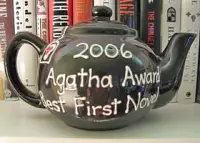 crime fiction. Popularity as a person is a heavy factor. If you as an author do not do your own promotion–in other words get out there and push your work–especially at mystery conventions such as Malice, you will not particularly be noticed. If you don’t attend Malice, and you are a traditional mystery author, your odds of being nominated and winning are lowered. Not nonexistent, but less.
crime fiction. Popularity as a person is a heavy factor. If you as an author do not do your own promotion–in other words get out there and push your work–especially at mystery conventions such as Malice, you will not particularly be noticed. If you don’t attend Malice, and you are a traditional mystery author, your odds of being nominated and winning are lowered. Not nonexistent, but less.
First time nominees naturally, are not part of the ‘popular’ syndrome. Malice readers find these newbies on their own-or with the help of indie sellers. However, once the author is now established within that community, he or she must work to keep in the mind and view of the fans–and that requires attending things like Malice. Out of sight, out of mind.
This is not unusual for fan based awards. And to be clear–the fans that a attend Malice are smart, discerning readers. And, a ton of authors themselves attend, nominated or not, and they know a well written mystery when they see one. Some of the fans I know are dead serious about this process, and popularity does not consciously enter into their nominations or votes. The times I attended the convention–I’d not read any of the juvenile, or non fiction, and therefore didn’t vote in those categories. But, I admit I did vote for a friend’s book over other nominees in the Best category, and I hadn’t read all the other nominees’ work. My friend’s book was excellent, was it the best among the nominees? Without reading them all, and being unswayed by friendship, I wouldn’t know. I may be among a minority, but if so, that minority can determine winners.
However a writer becomes the winner of an Agatha, it is usually well deserved. Some of the individuals who were nominated and won an Agatha for their first novel have gone on to major publishing careers, and are now icons in the soft boiled genre. Elizabeth George, Katherine Page Hall, Caroline Graham, Jill Churchill, Diane Mott Davidson, Susan Wittig Albert, Nevada Barr, Jan Burke, Deborah Crombie, and Janet Evanovich (who lost).
Once established, certain authors are nominated in the Best category repetitively. Donna Andrews, Louise Penny, Margaret Maron, Jacqueline Wispear, Rhys Bowen, Elizabeth Peters, Joan Hess, Julia Spencer-Fleming, are among them.
This year’s awards will be bestowed at a dinner during the convention which runs:
April 27 – 29, 2012 at the Hyatt, Bethesda, MD
The Guest of Honor this year is the acclaimed author of the Irene Kelly novels, Jan Burke.
A nominee this year herself, the Toastmaster is Dana Cameron.
Simon Brett, prolific and humorous British crime novelist is being given the Lifetime Achievement award. The Ghost of Honor, is Tony Hillerman–as you probably guessed, this honors a great writer no longer alive. There are also awards for a fan, and achievement in the field other than author, or fan.
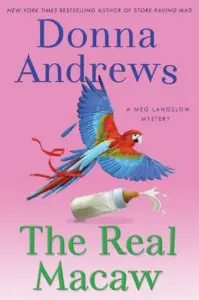 Best Novel:
Best Novel:
The Real Macaw by Donna Andrews (Minotaur)
The Diva Haunts the House by Krista Davis (Berkley)
Wicked Autumn by G.M. Malliet (Minotaur)
Three-Day Town by Margaret Maron (Grand Central Publishing)
A Trick of the Light by Louise Penny (Minotaur)
Best First Novel:
Dire Threads by Janet Bolin (Berkley)
Choke by Kaye George (Mainly Murder Press)
Learning to Swim by Sara J. Henry (Crown)
Who Do, Voodoo? by Rochelle Staab (Berkley)
Tempest in the Tea Leaves by Kari Lee Townsend (Berkley)
Best Non-fiction:
Books, Crooks and Counselors: How to Write Accurately About Criminal Law and Courtroom Procedure by Leslie Budewitz (Linden)
Agatha Christie: Murder in the Making: More Stories and Secrets from Her Notebooks by John Curran (Harper)
On Conan Doyle: Or, The Whole Art of Storytelling by Michael Dirda (Princeton University Press)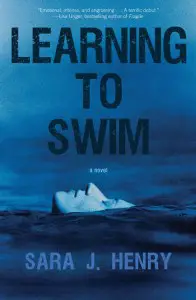
Wilkie Collins, Vera Caspary and the Evolution of the Casebook Novel by A. B. Emrys (McFarland)
The Sookie Stackhouse Companion by Charlaine Harris (Ace)
Best Short Story:
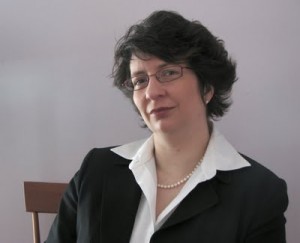 “Disarming” by Dana Cameron, Ellery Queen Mystery Magazine – June 2011
“Disarming” by Dana Cameron, Ellery Queen Mystery Magazine – June 2011
“Dead Eye Gravy” by Krista Davis, Fish Tales: The Guppy Anthology (Wildside Press)
“Palace by the Lake” by Daryl Wood Gerber, Fish Tales: The Guppy Anthology (Wildside Press)
“Truth and Consequences” by Barb Goffman, Mystery Times Ten (Buddhapuss Ink)
“The Itinerary” by Roberta Isleib, MWA Presents the Rich and the Dead (Grand Central Publishing)
Best Children’s/Young Adult:
Shelter by Harlan Coben (Putnam)
The Black Heart Crypt by Chris Grabenstein (Random House)
Icefall by Matthew J. Kirby (Scholastic Press)
The Wizard of Dark Street by Shawn Thomas Odyssey (EgmontUSA)
The Code Busters Club, Case #1: The Secret of the Skeleton Key by Penny Warner (EgmontUSA)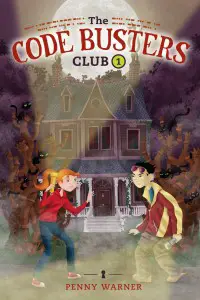
Best Historical Novel:
Naughty in Nice by Rhys Bowen (Berkley)
Murder Your Darlings by J.J. Murphy (Signet)
Mercury’s Rise by Ann Parker (Poisoned Pen Press)
Troubled Bones by Jeri Westerson (Minotaur)
A Lesson in Secrets by Jacqueline Winspear (Harper)
For more info about the conference itself, past winners, and scheduled author attendees:
